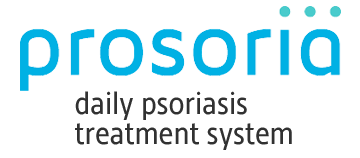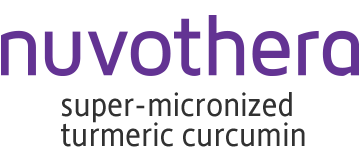What is Plaque Psoriasis?
15 Nov 18

Psoriasis is a skin disorder that occurs when your immune system mistakenly causes a speed up in your skin’s natural life cycle. This results in skin cells rapidly building up on top of each other, leading to scaly patches and itchiness. Psoriasis is an immune-mediated disease that affects up to 7.5 million Americans, and it appears in several different forms. The most common type of psoriasis is plaque psoriasis. Read ahead to learn more about plaque psoriasis, how it is diagnosed, and the different treatment options available.
What is Plaque Psoriasis?
Plaque psoriasis is the most common form of the disorder. It’s characterized by dry, red, raised patches of skin that are known as plaques. These patches are often also covered in a silvery white buildup that appears scaly. These are dead skin cells. Plaques can appear essentially anywhere on the body, but you are most likely to find them on your knees, scalp, lower back, and elbows. Given the severity of itchiness and dryness, the plaques can also potentially crack and bleed. These scaly patches of inflamed skin can range from just a few small spots appearing like dandruff or major, widespread patches covering large areas of skin.
While these plaques are the most common and identifiable signs and symptoms of plaque psoriasis, you may experience other symptoms, including:
- Ridged, thickened, or pitted nails
- Small areas of scaling
- Itchy, burning, sore skin
- Stiff, swollen joints (often a sign of psoriatic arthritis)
Much like other forms of psoriasis, plaque psoriasis operates in cycles where symptoms will flare up for weeks or months before subsiding.
While scientists aren’t sure exactly what causes plaque psoriasis and the immune system malfunctions, there is an understanding that certain personal and environmental factors can trigger psoriasis flare-ups. These can vary from person to person, but common triggers include:
- Stress
- Skin injuries (cuts, bug bites, sunburn)
- Smoking
- Certain medications
Diagnosing Plaque Psoriasis
There currently is not a special blood test to diagnose forms of psoriasis. Plaque psoriasis is often easily diagnosed through a physical exam. Your doctor will look at your skin, scalp, and nails, checking specifically for raised, red scales that are well-defined.
As psoriasis can often be mistaken for other diseases and disorders, including eczema, seborrheic dermatitis, and heat rash, your doctor may take a biopsy to make sure. A biopsy involves taking a small sample of the affected skin and looking at it under a microscope. Skin suffering from psoriasis generally appears thicker and more inflamed than eczema.
Treatments for Plaque Psoriasis
Plaque psoriasis treatments aim to reduce overall inflammation and clear up the skin patches. Doctors can prescribe a wide range of treatment therapies depending on the stage of plaque psoriasis, many of which can be used in combination for optimal effect. Treatments are broken down into three different types: topical treatments, phototherapy, and systemic medication.
Topical Treatments
Topical treatments are often the first choice for most types of psoriasis. When used alone, topical creams and ointments can effectively reduce symptoms in mild to moderate plaque psoriasis. These include:
- Topical corticosteroids – The most frequently prescribed medication for milder forms of psoriasis, topical corticosteroids work to relieve itchiness and reduce overall inflammation.
- Synthetic vitamin D – Synthetic forms of vitamin D can help to slow down the rapid skin growth.
- Topical retinoids – Topical retinoids are derivatives of vitamin A. Along with helping to shed away skin, these can help to reduce inflammation.
Phototherapy
Phototherapy, or light therapy, involves regularly exposing skin to natural or artificial ultraviolet light under the supervision of a medical professional. In its simplest form, this can involve exposing skin to sunlight. UV light may help to reduce inflammation and slow down skin cell turnover.
Systemic Medication
Systemic medication simply refers to prescription drugs either taken orally or injected by your physician. Systemic medication is usually reserved for severe plaque psoriasis or forms of psoriasis that are unresponsive to other treatments. While these are highly effective, the side effects can also be severe, which is why some systemic medications are only prescribed for short periods of time.
Home Remedies for Plaque Psoriasis
Although home remedies can’t cure plaque psoriasis, they can help to soothe inflamed skin and provide general comfort.
- Take daily baths to calm inflammation and remove scales.
- Apply a heavy moisturizer every day.
- Avoid any triggers that you know about.
- Avoid excessive drinking of alcohol, which can exacerbate inflammation and possibly decrease the effectiveness of some treatments.
Remember that psoriasis doesn’t define you as a person, but coping with psoriasis can be challenging. Finding a support group and staying educated can go a long way to ensuring your own mental health and wellbeing.
Sources:
- https://www.psoriasis.org/content/statistics
- https://www.mayoclinic.org/diseases-conditions/psoriasis/symptoms-causes/syc-20355840
- https://www.psoriasis.org/about-psoriasis/types/plaque
- https://www.medicalnewstoday.com/articles/315502.php

